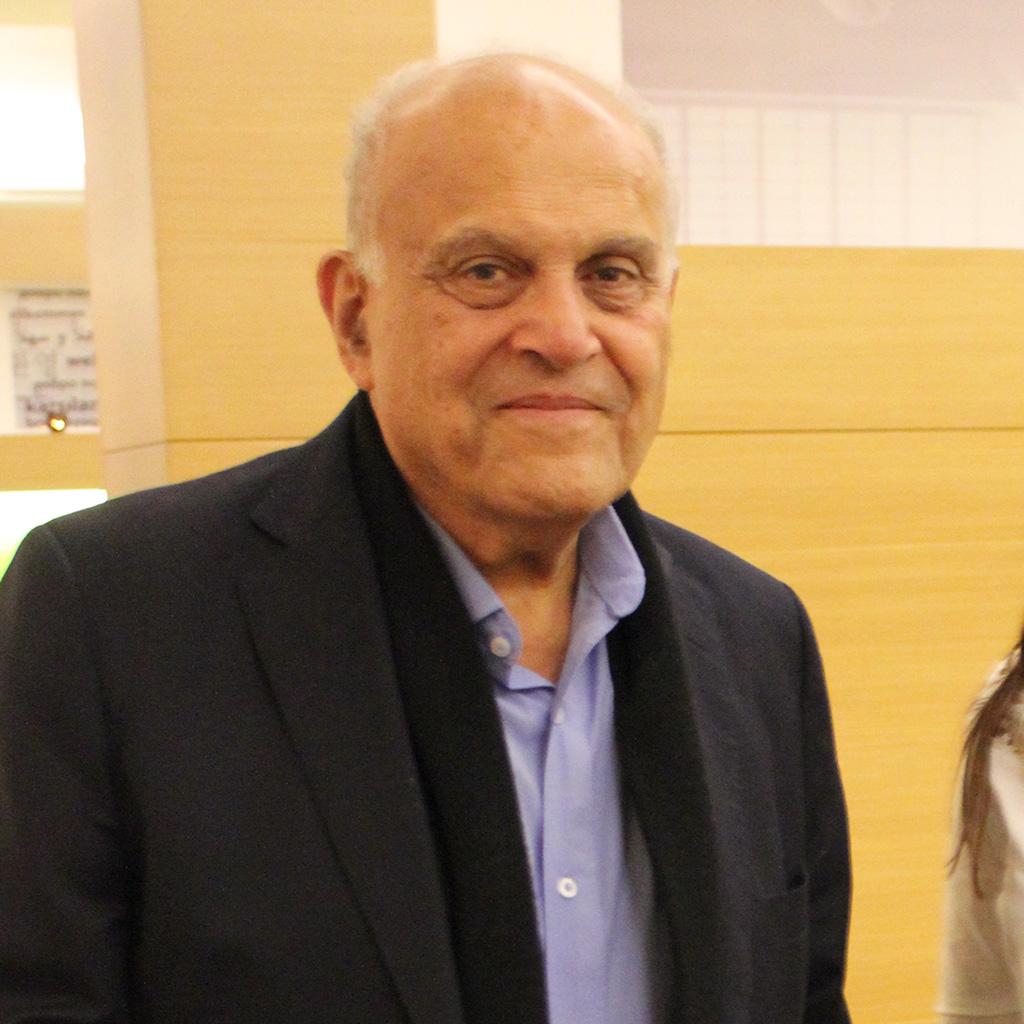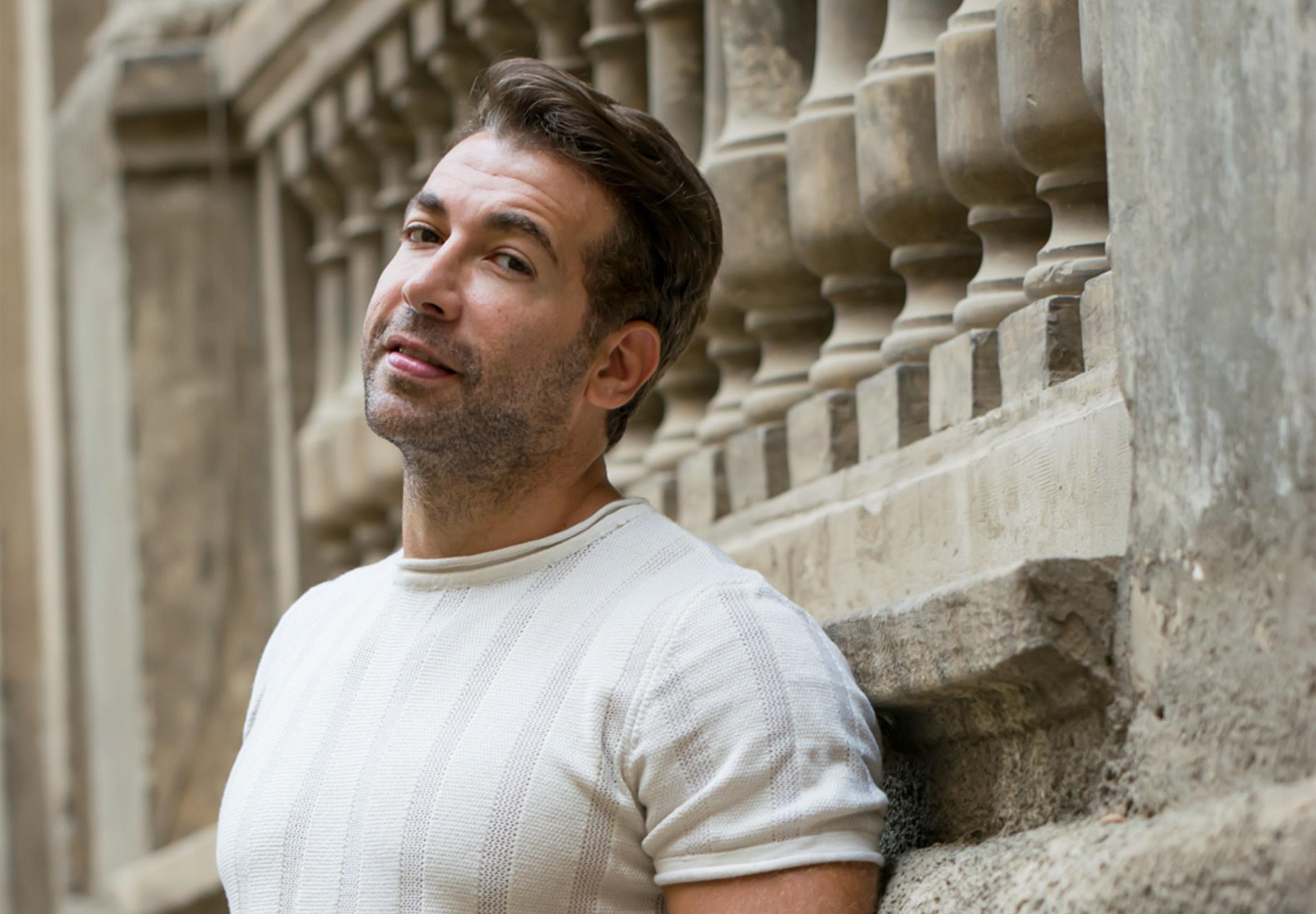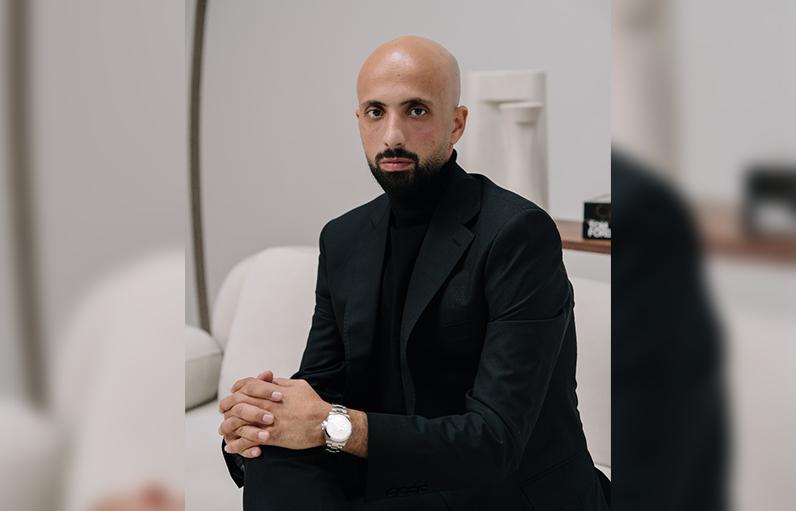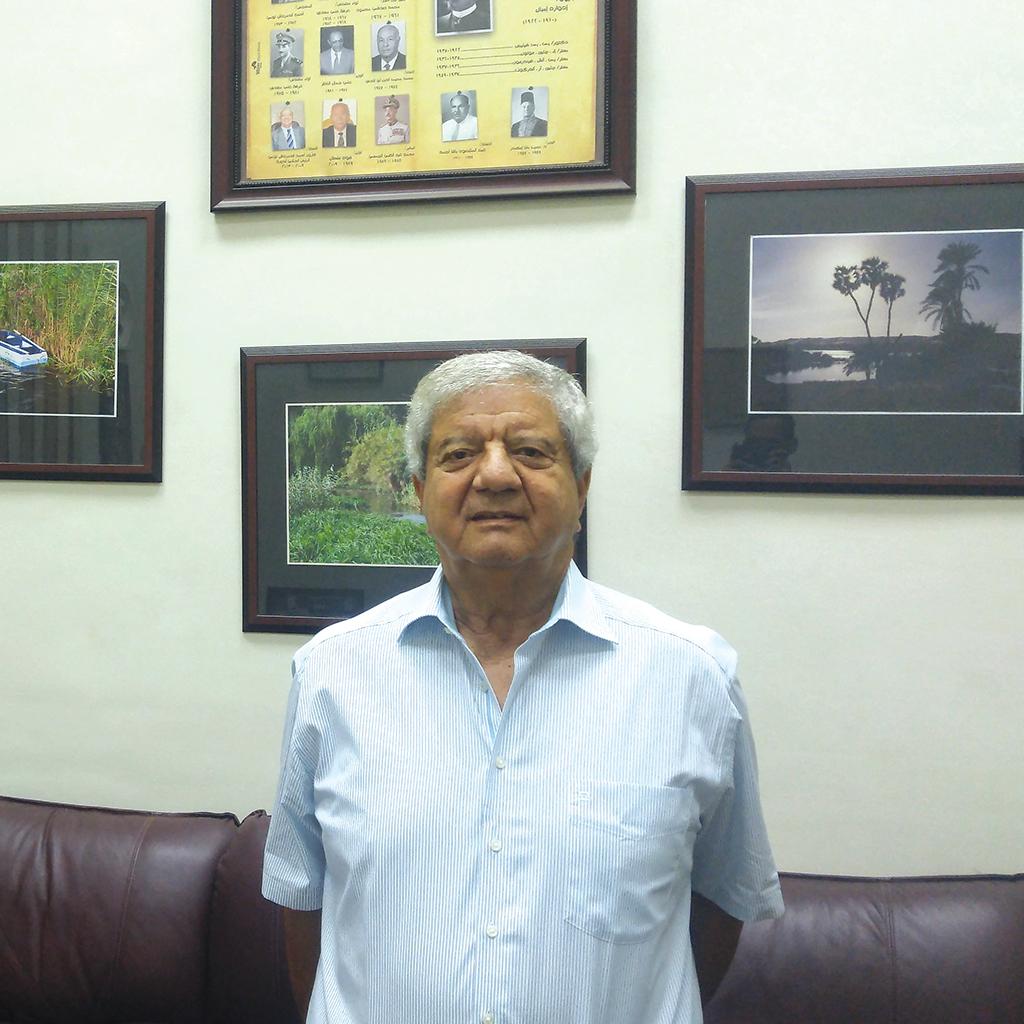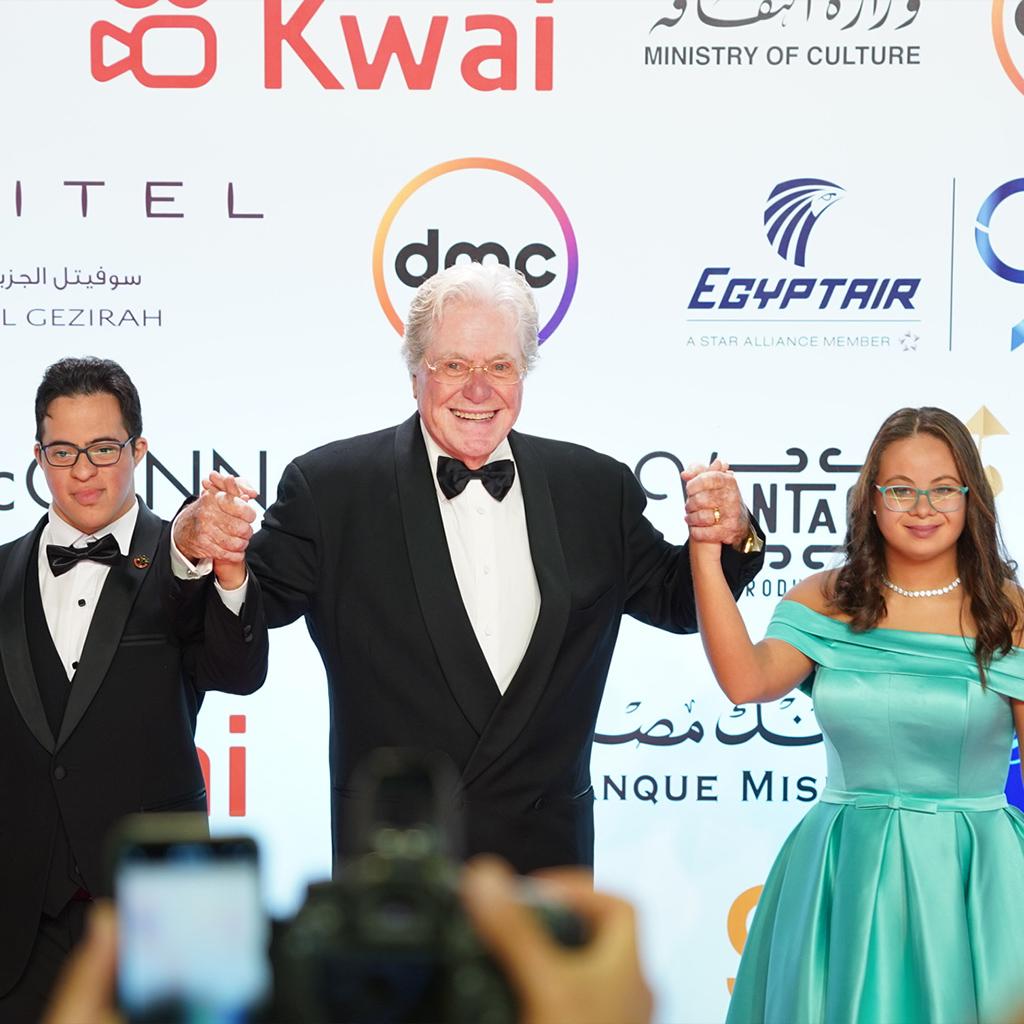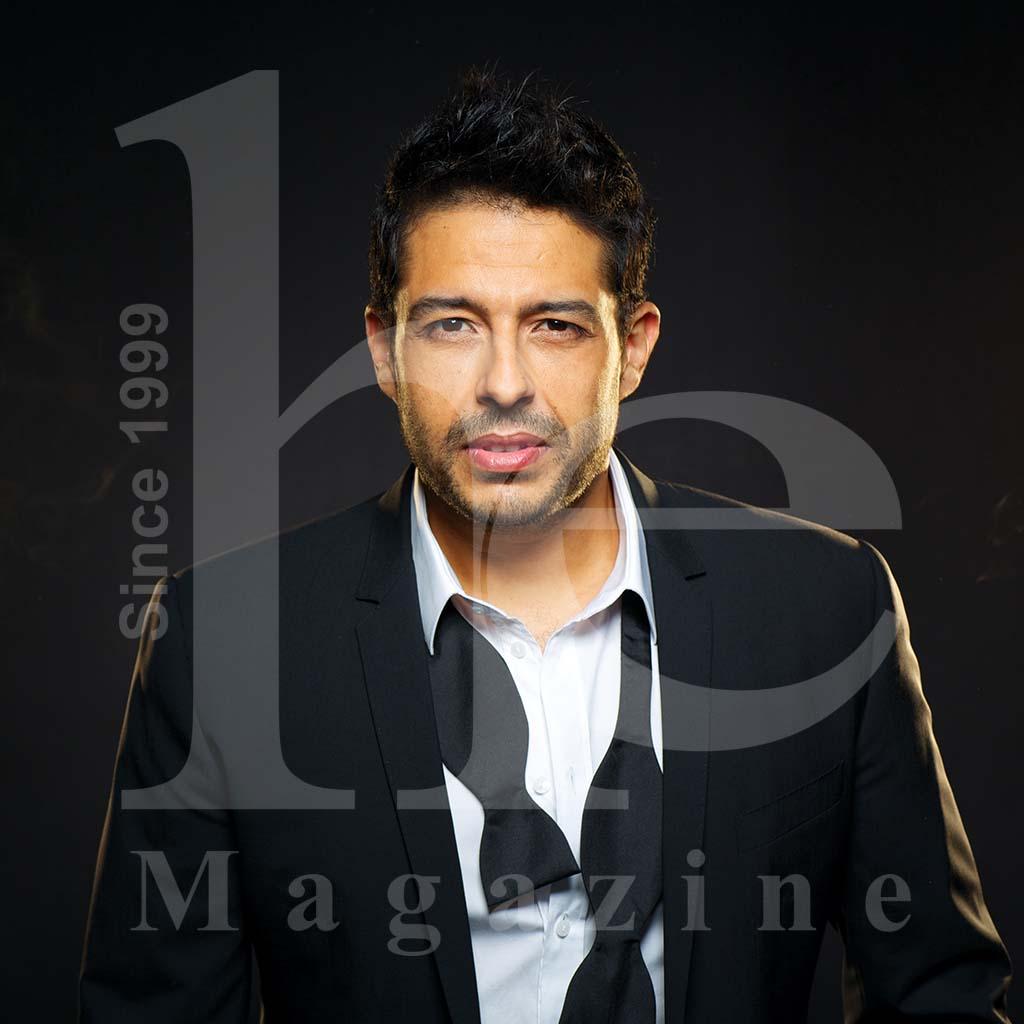
Date: 2013-11-01
when focusing on Hamaki’s achievements one usually forgets to emphasize Hamaki’s rare patriotic quality and support for his country and its people, which distinguishes him from other artists
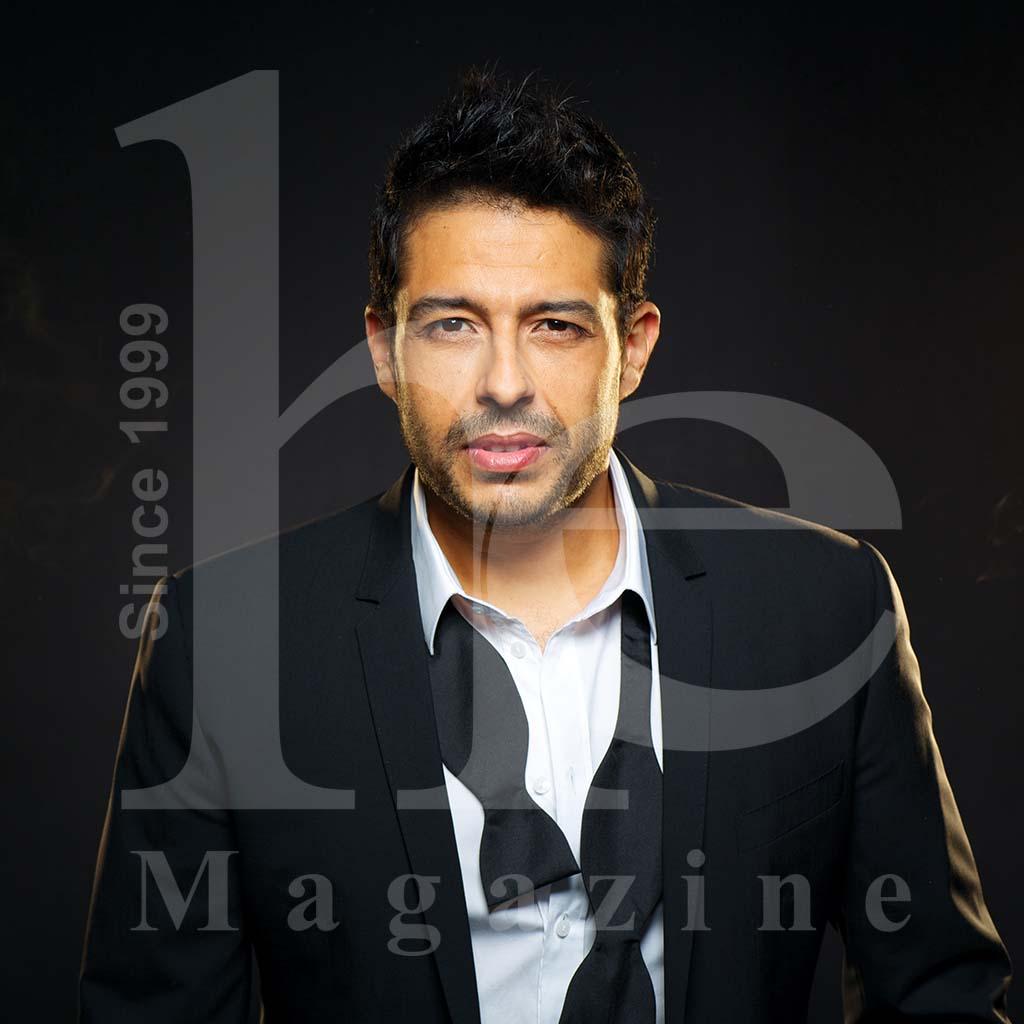
Mohamed Hamaki seldom needs a formal introduction as his popularity precedes him as a world renowned singer and musician having won numerous awards, the latest of which is his Middle East Music Award (MEMA) festival award as the best singer and best album. However, when focusing on Hamaki’s achievements one usually forgets to emphasize Hamaki’s rare patriotic quality and support for his country and its people, which distinguishes him from other artists.
The rise of Hamaki
Hamaki was a talented young boy both on the sports field as a football player and as a gifted musician at home, where he enjoyed playing the keyboard. He had a sharp ear for music allowing him to hear notes and eloquently point out which instrument is most suited to produce the desired sound, a talent usually reserved for experienced musicians. Hamaki also revealed that, as a young boy aspiring to achieve fame, his bedroom wall was covered in posters of Michael Jackson, Maradona and Taher Abozeid, the famous El-Ahly team midfielder Hamaki was hoping one day to replace. .
In the battle between his sports talent and musical abilities, time proved to Hamaki where his true dedication lay. He goes on to explain that he played for Nady El-Ahly (El-Ahly Club), to which he was a loyal supporter, hoping to make the team. Unfortunately his talents were not recognized, leaving the young boy with his dream crushed. When offered a position in El Zamalek Club, Hamaki refused out of principle for he was a firm El-Ahly supporter. This marked the end of Hamaki’s football career for he didn’t fight for this dream as much as for a music career to which he gave his all. He claims that his passion for football was due to the opportunity for exercising this talent whether at school, at home or anywhere. His musical talents were not as widely acknowledged but the ease with which he let go of his football career proved that it was merely a hobby.
This led to his enrolment in music school against his father’s advice to go a different route and to take up music as a hobby, in a conservatory for example, as his father couldn’t picture a future in such a field but Hamaki’s strong will proved otherwise as his popularity and progress were soon to follow. Nevertheless, he says that his family were extremely supportive of his decision and proud of his dedication following his immediate success.

Music is a mere reflection
Hamaki believes that artists are merely a store of everything they have been exposed to and all the music they have heard and that their work is the creative outcome of all this musical knowledge with a twist of personality added. In order to stand out from other artists, a personality must shine brightly through his art. In order to achieve this, Hamaki works closely with his team, editing and remodelling his songs to make sure that his personality is evident throughout. Hamaki stresses that he enriched his basic musical knowledge through music history education, more specifically the baroque music period. However, his exposure and vast store of Arabic music puts a unique twist on his music making him the success he is. Much of his music knowledge is compilations of music from Egyptian artists such as Om Kalthom, Abdel Halim Hafez and Mohamed Mounir. His exposure to such great Egyptian art gave him an advantage and putting him ahead of other artists thus labelling him as unique and therefore successful.
Patriotic at heartIt’s no secret that Hamaki often tweets in support of Egypt, whether it be for a football match or a general plea for the Egyptian people. In addition, his recent release of the song ‘Om El Donia’ further emphasises his nationalistic nature. When asked for Hamaki’s personal opinion on the current situation in Egypt he often repeats that we are in a critical time in the history of Egypt. He uses the metaphor that Egypt is in the midst of a dynamic hurricane, the velocityand direction of which is unknown. One cannot see the events clearly until the storm has passed because the events are too dynamic and constant change makes the situation unpredictable.
Hamaki’s main worry is that three years have passed leaving Egypt unchanged and the population unsatisfied. He goes on to say that he is for the revolution and for the change that the population is demanding however, the path to change has proved rocky and difficult. Since the first revolution, we have been going on and off the track constantly, sometimes moving in the right direction and sometimes in reverse. At this point in history the army has placed us on the correct track once again; it is the peoples’ responsibility that we remain on this track.
Important advice was also passed on from Hamaki in order to remain on the correct path to success.He reiterates that the population has a massive role in giving power and power corrupts. He warns the Egyptians by saying that we have a tendency to glorify monarchs to the point of downfall; giving extra importance to people of great power often leads to corruption. He pleads that the Egyptian population do notfall into this problem again. It is the population’s duty to respect and venerate the ruler but at the same time not to over empower them to avoid the associated problems, as was the case with Mubarak. For the first 5-10 years people believed he was the correct choice and encouraged his ruling but over time, as the population began to glorify the president, he took advantage of this which led to the country’s eventual downfall; we must learn from our mistakes he says.
Hamaki expresses his disappointment about the news that Bassem Youssef will not be allowed to perform, firmly believing that Bassem Youssef is merely awakening the population to the problems occurring in the country; he says it’s unjust that we eliminate him this way when he did no harm.
‘’We’ve been on park for three years now, it’s time to hit the gas pedal, ’’Hamaki says. He continues to say that we have made enough mistakes to learn from and be able to move forward in the correct direction. We are a vehicle stuck on park and only when we begin to move will we know how long it will take for Egypt to resurface and develop at the rate it should be but the first step is to set the plan in motion.
Egypt is the gateway to successWhen asked whether the revolution and many of the problems Egypt is now facing has affected artists in Egypt, Hamaki revealed the shocking truth that it has shaken the solid foundation of artists in the entire Arab world, not only Egypt. He goes on to say that many artists can become stars in their respective countries however, to become a world renowned super star they must earn success in Egypt. A few examples of the fame which Egypt has brought to other Arabian artists include Nancy Agram, Hussein El Gasmy and Elissa, well known for her Lebanese nationalism. Hamaki goes so far as to say that Arabian artists or, in general, foreign artists are praying for the resurfacing of Egypt even before the Egyptian themselves and that anything that happens in Egypt affects the whole of the Arab society.
Bright future for HamakiHamaki’s achievements do not stop here as he reveals to us some exclusive information on an upcoming event, celebrating the passing of ten years from the release of his first album ‘khaleena n3eesh’(Let us live) in 2003. He leaves the interview with a cliff hanger by saying it will be the first event of such a magnitude in the Middle East. Awaiting details to be added in this section.

Music Solo Achievements
|
Year |
Album |
|
2003 |
|
|
2003 |
|
|
2004 |
|
|
2005 |
|
|
2005 |
|
|
2006 |
|
|
2007 |
|
|
2008 |
|
|
2008 |
|
|
2009 |
|
|
2009 |
|
|
2010 |
|
|
2012 |
Music Awards Timeline:
|
2003 |
"Best Artist" from both Egyptian and Arabic charts. |
|
2003 |
Best Arabic Singer" for 2003 by "El Nil Lel Monaw'at" channel. |
|
2006 |
Golden CD" for 2005 by "Akhbar El Nogoom" charts on his single "Yana Yanta". |
|
2006 |
He was honoured at "El Zohour" club's concert in 2006. |
|
2006 |
He was honoured by "El Nil Lel Monaw'at" channel in 2006. |
|
2006 |
Best Youth Singer" and "Best Album" for 2006 by "Filbalad" site. |
|
2006 |
Best Youth Voice" for 2006 by "Layalina" Magazine. |
|
2006 |
"Best Singer" by "Mahragan El Fonoon Wal Thakafa" in 2006. |
|
2006 |
Best Youth Voice" by "Delta Academy of Science" in 2006. |
|
2007 |
"Platinium CD" from "EMI" for achieving the highest sales in the Middle East in 2006 by album "Kheles El Kalam". |
|
2007 |
"Best Singer" for 2006 in "El Mas'ood" festival. |
|
2007 |
"Best Arabic Singer" for 2006 by "Horeyaty" magazine |
|
2007 |
"Best Singer" by "El Ahram El Masaay" newspaper. |
|
2007 |
He was honoured at "GUC" concert |
|
2007 |
He was honoured at "Solidaire" concert by "Koleyet El Athar" |
|
2007 |
Best Song" for "Ahla Haga Feeky" from "Mobinil Music Award". |
|
2007 |
He was honoured by "El Nil Lel Monaw'at" channel in 2007. |
|
2008 |
He was honoured in "Kuwait" by "Hala Febrayer" festival |
|
2008 |
He was honoured also by "MUST" university as the most popular singer in 2008. |
|
2008 |
He was honoured at "El Zohour" club's concert in 2008. |
|
|
…. |
|
|
|
|
|
|
